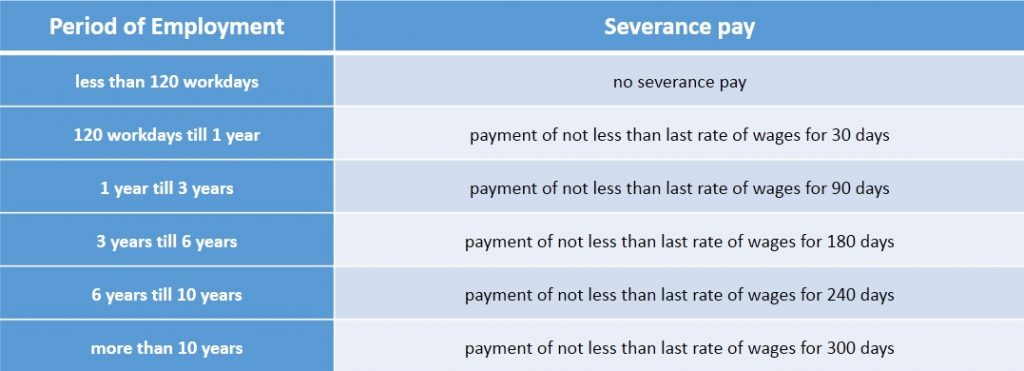

Termination of Employment : Part III – Lay-Off Termination
What are the definitions of “termination” and “lay-off”?
Termination of employment is an employee’s departure from a job. Termination may be voluntary on the employee’s part, or it may be at the hands of the employer, often in the form of dismissal (firing) or a layoff.
Dismissal or firing is generally thought to be the fault of the employee, whereas a layoff is generally done for business reasons (for instance a business slowdown or an economic downturn) outside the employee’s performance.
Checklist:
If you decide to terminate an employee with an unlimited temporary employment, please pay attention our following advice for a correct termination:
1. Notice period
The employer must mind the notice period which ends on the date of the next wage payment. This is usually the last working day of the month following the termination notice.
E.g.: A termination notice is submitted on 10. February. The notice period then ends on 31st March (presumed that the 31st march is not on a weekend or public holiday).
Remark regarding probation period
- The requirement for a notice period applies for the first 120 workdays as well.
- Therefore, an employee in a probation period must be given the same notice period;
- A paragraph in the employment contract which allows the employer to layoff without notice during the probation period is void;
- If the employer does not observe the notice period, the employee is entitled to wage payment during the notice period (“wage in lieu of advance notice”)
2. Severance pay
An employer shall pay severance pay to an employee who is laid off. The amount of the severance pay varies, depending on the period of employment:
Remark: the employer is not required to pay severance to an employee whose employment is terminated with cause ( -> Please see our client memo on dismissal of an employee with cause )
Two special cases for severance pay:
a) reorganization measures due usage of machines
- In this case, the employer must to make an announcement of an intended termination 60 days in advance and inform the “Labour Inspector”
- If the employer neglects the period, he must pay special severance in amount of the wage payment for 60 days beside the regular severance pay (“special severance pay in lieu in advance notice”)
b) relocating of the workplace
- If the employee is unwilling to work at the new workplace, he has the right to terminate the employment.
- In this case, the employee has the claim to get the full regular severance pay
3. Annual holiday pay, Overtime pay, Holiday pay, Holiday overtime pay
The Employer shall pay wages of the employee for annual holidays in the year of termination equal to the proportion of annual holidays to which the employee is entitled. Also, Overtime Pay and Holiday Overtime Pay to which the Employee is entitled shall be paid within three days from the date of the Employee’s termination
Fabian Doppler
Fabian is a founding partner of FRANK Legal & Tax. He focuses his practice on corporate / commercial and real estate law, as well as litigation. He is admitted to the Bar of Stuttgart, Germany, where he actively practiced law before coming to Thailand in 2005.


